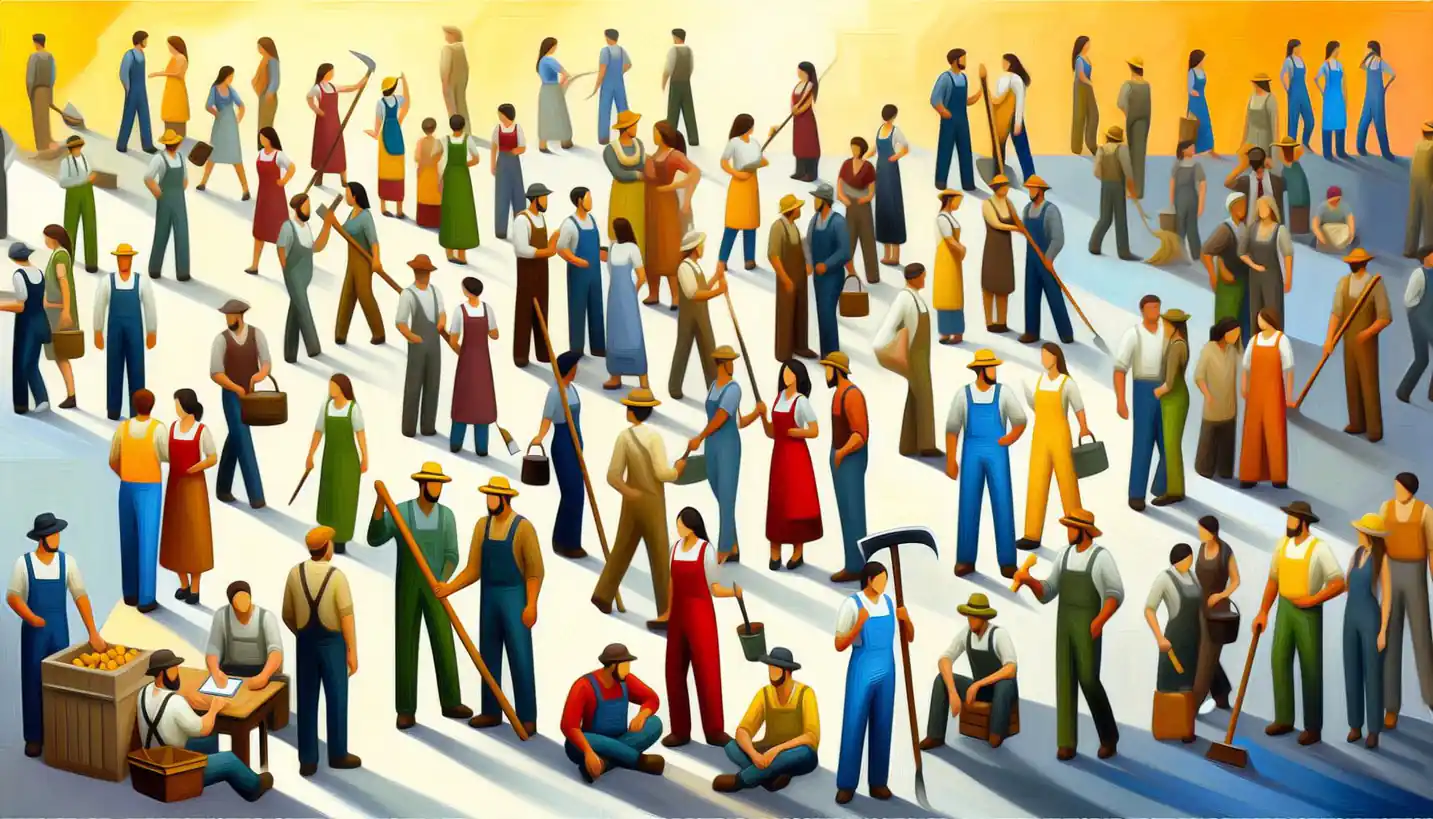· Sociology · 5 min read
Family of Procreation: Building New Beginnings
Discover the significance of the Family of Procreation, emphasizing the formation of new family units and the beginnings of fresh narratives in society.

In the world of sociology, the phrase “family of procreation” holds a significant place, conjuring up images of new beginnings and the establishment of one’s own family unit. It refers to the family that people create through marriage or by having children. Unlike the family you are born into, known as the “family of orientation,” the family of procreation is about forging your own path and making crucial life decisions that shape your future.
Understanding the Concept
The term “family of procreation” captures the journey of adulthood where individuals step into roles such as spouses and parents. Picture a couple deciding to start a family: this marks the transition from being a part of a family you were born into, to crafting a new family unit that you have chosen and nurtured.
Sociologically, this concept is vital because it highlights the changing dynamics of relationships and responsibilities. It’s about mutual choices and collaborative efforts to create a supportive environment for the next generation.
The Shift from Orientation to Procreation
The transition from a family of orientation to a family of procreation is often seen as a milestone in a person’s life. This shift involves moving away from the roles and expectations set by one’s parents and beginning to establish one’s own set of norms and values within a newly formed family. This autonomy is a crucial aspect of growing up and making independent life choices.
In many cultures, this transition is celebrated through rituals and traditions, underlining its importance in the life cycle. It’s a step that is universally recognized, yet it can look very different depending on social norms, cultural backgrounds, and individual preferences.
Cultural Variations
Around the globe, the formation of a family of procreation can vary widely. In some cultures, it’s heavily intertwined with religious and societal expectations. For instance, in many traditional societies, marriages are arranged with the primary goal of creating a stable family for procreation. In contrast, other cultures may place a higher value on personal choice and love as the foundations of starting a new family.
The diversity in these practices underlines the adaptability and the personal nature of forming a family of procreation. While some may view it as a duty, others see it as a personal adventure. Despite these differences, the core idea remains the same: the creation of a family unit meant to forge a future and nurture the next generation.
Modern Perspectives and Challenges
In today’s world, the concept of a family of procreation faces new challenges and interpretations. With rising trends in cohabitation, delayed marriages, and alternative family structures like single-parent or same-sex households, the traditional views are being re-evaluated. The delay in establishing a family due to career priorities, financial considerations, or personal choice is also reshaping family dynamics.
Technological advancements in reproductive health have further expanded the possibilities for families of procreation. Surrogacy, IVF, and other assisted reproductive technologies allow individuals who may not be able to conceive naturally to still create their desired family units.
The Role of Love and Choice
Love and personal choice are now major factors influencing the formation of a family of procreation. People are more focused on finding partners who share similar life goals and emotional compatibility. This shift emphasizes that a family is not just a social institution but an emotional bond characterized by support, care, and shared memories.
As people increasingly marry later in life and invest more in personal development, the family of procreation often benefits from better-planned and mature relationships. These evolving trends redefine what it means to create a family, reflecting modern values and lifestyles.
Sociological Impact
From a sociological viewpoint, families of procreation show how societies change and adapt. They’re a reflection of evolving norms, gender roles, and social policies. Sociologists study these families to understand larger patterns, such as demographic changes, economic factors affecting family life, and the impact of cultural shifts on family structures.
Understanding these dynamics helps policymakers, educators, and social workers craft better support systems for families. It provides insights into how societal changes influence personal lives and vice versa.
Challenges and Adaptations
While forming a family of procreation brings joy, it also comes with its set of challenges. Balancing work, personal life, and parenting is a common struggle, amplified by modern-day demands. Families today need to adapt to rapid social changes, economic pressures, and shifting expectations.
Open communication, flexibility, and a strong support network can help families navigate these complexities. Modern families are learning to juggle roles and responsibilities in ways that previous generations couldn’t have envisioned.
A Glimpse into the Future
Looking ahead, the concept of the family of procreation will continue to evolve. As societies become increasingly diverse and inclusive, new forms of family units are likely to emerge. The recognition of different types of partnerships and parenting styles will redefine traditional notions of family.
The ongoing dialogue around family values, reproductive rights, and social policies will play a critical role in shaping the future of the family of procreation. It’s an exciting space where old traditions meet new ideas, creating pathways for future generations to explore.
In sum, the family of procreation is a fundamental part of human experience, continually evolving with societal transformations. It embodies the essence of personal choice, love, and the everlasting human drive to connect and create.


